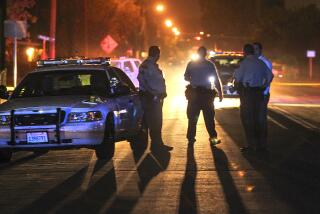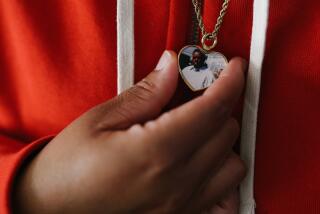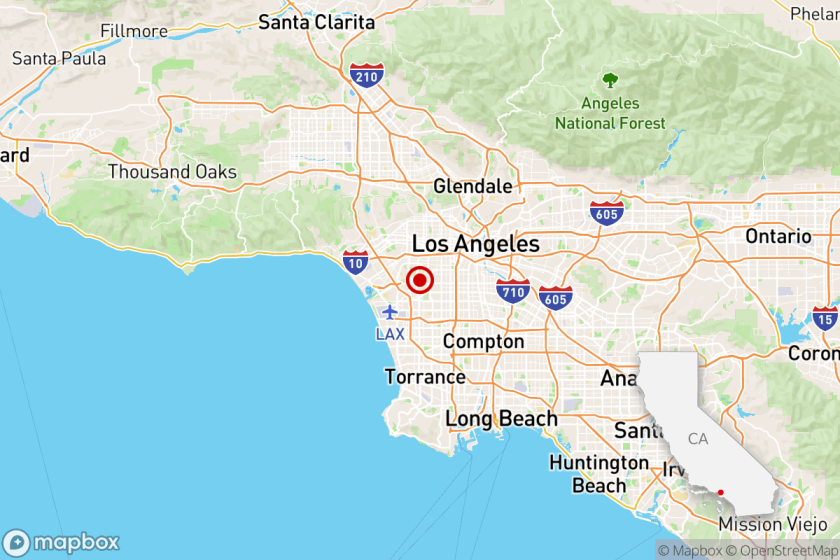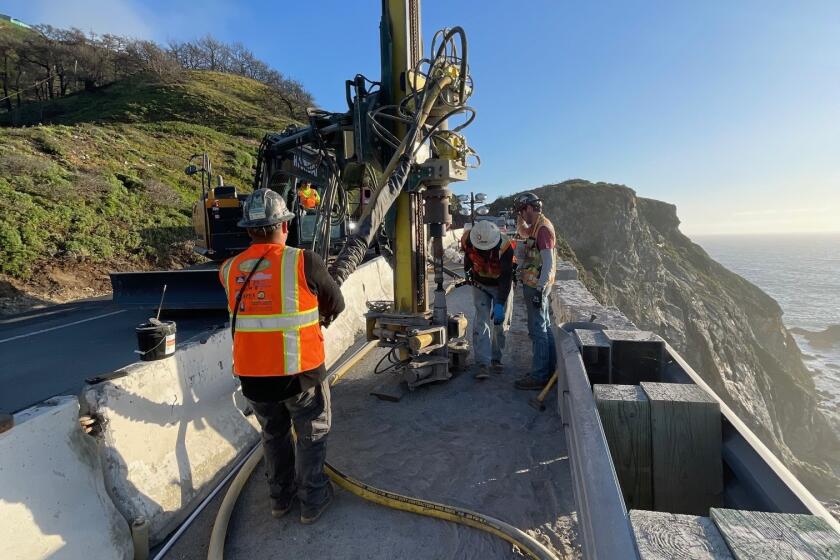A barbaric death, and a plea for a change in the law
“My husband has repeatedly asked me to give him a gun, he has asked me to shoot him, and he repeatedly begs to die.”
This came to me Wednesday afternoon in an email from a Northern California woman.
“All I can do is give him the prescribed doses of morphine provided and hope it’s enough to enable him to let go,” said Sandy Wester, whose 71-year-old husband, Donald — Donnie she called him — was in hospice care, with cancer spreading through his body. His dignity was gone, he had many of the same needs as an infant, and the long days brought nothing but anguish.
Wester wrote to say she had followed my accounts of my father’s death and was incensed by my July 22 column about the arrest of an 87-year-old Palm Springs man. Bill Bentinck was locked up for three days on suspicion of murder after his terminally ill wife removed her nasal oxygen catheter to speed death along. Bentinck, who quietly allowed her to pass, was held on $1-million bail but was later released without charges.
I called Wester as soon as I got the email, and she described the scene playing out in her cabin in the Sierra foothills. Donnie, who hadn’t eaten in days, was trying to lift himself off the bed, angry that death was making him wait so long.
“He’s flipping a chair,” Sandy said, describing a light, plastic lawn chair next to the bed. “He’s saying, ‘Why can’t I just die?’”
I flew to Sacramento on Thursday and drove two hours east, across the parched valley and into the Mother Lode, to the little town of Wilseyville. Sandy and Donnie had retired there from the Bay Area, where they had both worked on the production line of a Peninsula newspaper. Though Donnie’s health was already failing from diabetes and a couple of heart attacks when they moved, the couple found paradise in a one-room cabin on the ledge of a breathtaking canyon above the rushing waters of the Mokelumne River’s Licking Fork. They lived modestly, restored old cars and saved for cross-country driving trips until Donnie got too frail.
When I pulled up to the cabin Thursday evening, Donnie was being wheeled out the front door, his death wish finally realized. Sandy was there in the pine-scented twilight, watching her husband leave for the last time, his body covered with a blue blanket. She held her hands to her face.
I helped lift the gurney off the wooden porch, and the attendant loaded the San Francisco native into the back of the white van. Sandy worried that her husband might tumble off his perch as the van twisted down a winding trail, but the attendant assured her Donnie would be safe.
Sandy went back inside, poured a glass of champagne for herself and her friend, Sue Kley, and toasted Donnie, who had died 90 minutes earlier, in the bed the couple had shared.
“He had a hell of a life,” she said, raising her glass. Then she told stories about Donnie’s pride in being a pressman and his love of the simple, solar-powered country life they adopted, with deer and the occasional black bear as neighbors.
Those pleasures began fading fast in April, after Donnie’s bladder cancer spread. When his kidneys began to give out, he realized that the doctor’s estimate that he had six months to live had been far too optimistic.
“It’ll be three weeks tomorrow that he screamed that he wanted to die,” Sandy said Thursday evening. “Get me a gun. Put me out of my misery. Donnie and I were very pragmatic about this. We had our DNR [do not resuscitate] papers filled out, the POLST [physician’s orders for life-sustaining treatment].”
Donnie’s line, according to Sandy, was that he wanted to wake up dead, meaning that if physician-assisted death wasn’t possible, he wanted to die in his sleep. Weeks of misery at the end of a good life “was not the way he wanted to go, and I think we need to have more control over the dying process,” Sandy said.
“My God,” said Sandy’s friend Sue, “we put our dogs down because they’ve got a terminal illness or can’t breathe or walk or whatever. But we make a human being … suffer.”
Sandy said Donnie had recently backed off his requests that she go fetch a pistol, but only because he didn’t want her to have to “clean him up.”
On Wednesday night, he fell out of bed and the fire department came to help Sandy lift him. On Thursday morning, he was barely hanging on.
“At 5:30, he laid there and that’s when the horrible breathing started,” she said of the death rattle that often signals the end is near. “And then it got worse. Oh my God, it was horrible.”
She used the word “barbaric” to describe the way Donnie died, and it’s not the first time I’ve heard that very description from a Californian wondering why we don’t have the same end-of-life options that residents of Oregon, Washington and Montana do. The answer is that religious organizations — chief among them the Catholic Church — and some medical associations have derailed such efforts in the past.
Sandy said she wanted to share Donnie’s story in hopes that more people will begin demanding a “compassionate death law in California.” If it hasn’t happened when her time comes, Sandy said, she’ll move to Oregon.
Before leaving the cabin, I asked Sandy if she’d be OK through the night. She looked through the window at the sun falling behind a shadowy, back-lit ridge and said she had Sue and other friends to call on if she needed them.
“I’ll be fine,” she said. “It’ll be a beautiful sunset tonight.”
More to Read
Start your day right
Sign up for Essential California for news, features and recommendations from the L.A. Times and beyond in your inbox six days a week.
You may occasionally receive promotional content from the Los Angeles Times.







